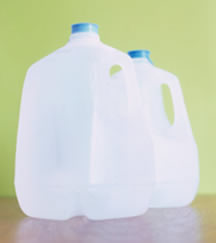Distilled Water
Ross Bridgeford
1. What is distilled water? |
 |
However, do not just take my word for it, just have a search on the Internet – you will see that distilled water is backed by renowned health experts such as Dr Weil, Harvey and Marylyn Diamond, the American Medical Journal and Dr Schroeder.
3. Isn't distilled water void of minerals that my body needs?
This is another popular myth that is based on no scientific fact!
Put most simply, there are two types of mineral – organic and inorganic. The body is only able to absorb organic minerals and it gets these from foods. As the body does not have a need to get minerals from water the best thing we can do is make our drinking water as pure from toxins and chemicals as possible.
While it is true that the process of distillation removes certain minerals from the water it the majority of these are inorganic and are therefore useless to the body. In any case, research has highlighted that you would have to drink over 650 eight-ounce glasses of tap water to reach the Recommended Daily Allowance for calcium. The fact that distillation makes water 100% pure should not be of concern.
4. Are distillers expensive to run?
It takes an average distiller approximately 3 kilowatts to make 4 litres of distilled water. In the UK, the price of a kw of electricity is approximately 5.5p. Therefore, to make four litres of freshly distilled, pure water it costs only 16-17 pence! This is only 4 pence per litre!
From the perspective of return on investment - it would take you approximately 99 days for your distiller to pay for itself:
3 litres of distilled water per day = 12.37p 3 litres of bottled mineral water per day = £2.04 Difference = £1.92
Price of a Fresh & Pure Distiller = £189.99
Days to pay for distiller based upon saving above = 99 days!
Distilled water is the best and most economical way to turn your tap water into fresh, pure and pH neutral drinking water. Home water distillers are not vastly expensive and as you can see, they pay for themselves in as little as three months!
If you have any other questions, please do not hesitate to get in touch!
For more information on home water distillers or to buy the Fresh & Pure Distiller visit energiseforlife.com - we offer a wide range of health products and nutrition resources to make it as easy as possible for you to reach your health goals.
Article Source: http://EzineArticles.com/
